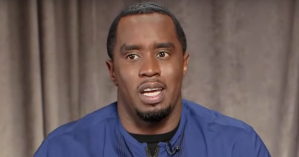The rollout of stimulus checks has been steady, and not without its share of issues. However, a number of U.S. citizens found out they didn’t qualify for the one-time payment of $1,200 for a few different reasons. While there isn’t an option to get a stimulus check, WBTV contacted Jamie Suber, the Chief Administrative Officer of the South Carolina Department of Employment and Workforce, who explained what choices are there for those who slipped through the cracks.
The first option is to try and file for unemployment insurance. If someone fails to meet qualifications for that, there is the possibility of pandemic unemployment assistance. Also known as PUA, the program is available as part of the $2 trillion CARES Act, which the stimulus payments are a part of. PUA is similar to unemployment insurance benefits, which can provide up to 39 weeks of benefits. Anyone who’s unable to qualify for federal or state are encouraged to apply, although there is still a screening process.
Videos by PopCulture.com
“Unemployment Insurance is complex, and it’s our task as an agency to balance state law and the new federal regulations handed down through the CARES Act,” Suber said. They also stressed that they have a listing of temporary jobs in South Carolina for those able to work, which is another possible option for those in different states.
Since the pandemic forced countless businesses across the country to temporarily close down, millions of people have applied for unemployment. In order to help jumpstart the economy as states start to loosen their Stay-at-Home mandates, a number of alternative solutions have been discussed — particularly as the one-time stimulus payment has continued to be criticized as insufficient.
This includes talk of a second stimulus, which would guarantee $2,000 a month on a recurring basis for most Americans. One bill, titled the Emergency Money for the People Act, is rooted in the idea of Universal Basic Income, a long-standing economic theory that has gained traction with House Speaker Nancy Pelosi, among others.
However, despite initial support from President Donald Trump, it appears he’s shifted his support for a payroll tax cut, which would temporarily suspend payments made to Social Security and Medicare out of paychecks. While the idea has been discussed for weeks, some argue that it wouldn’t be sufficient to truly jump-start the economy, and wouldn’t do anything to help the millions who are currently unemployed.









